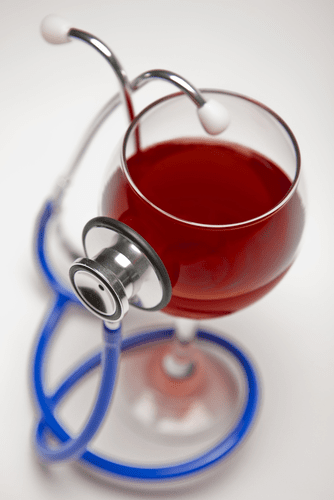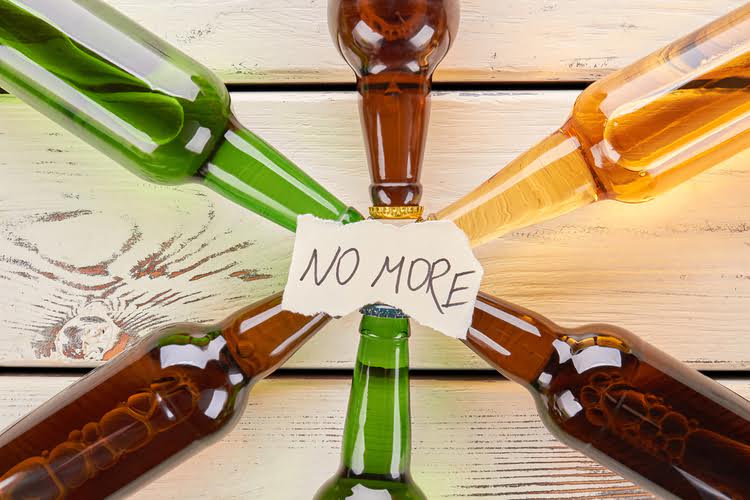Если самостоятельная торговля кажется трейдеру слишком обременительной, он может воспользоваться услугой «доверительное управление капиталом». Заключайте виртуальные сделки, используя тренировочный счет, учитесь пользоваться графиками, пробуйте строить прогнозы. И уже скоро вы сможете стать полноценным членом клуба Форекс и заработать на бирже свои первые деньги. Определившись с аккаунтом, нужно заполнить регистрационную форму, указав адрес электронной почты и телефонный номер. Также необходимо придумать пароль для входа в личный кабинет LamdaTrade.
Почему необходимо действовать быстро и разблокировать аккаунт AR Forex Pro Limited, что делать дальше?
- Несколько основных способов взломать ваш торговый форекс счет.
- ООО «Инфомо» входит в группу компаний под международным финансовым брендом — LamdaTrade, который существует на рынке с 1997 года.
- Инвестиции в валютный рынок не требуют глубоких математических знаний, но в аналитике трейдер должен разбираться.
Ситуация может удивить, но банк действовал строго в рамках законодательства и претензии к «внезапной» блокировке необоснованны. Возможно, Давиду перевел деньги мошенник, а сам предприниматель стал конечным получателем ворованных денег. Причина — жалоба владельца карты, с которой перевели деньги за покупку криптовалюты. Оганян честно признался поддержке, что получил деньги от продажи биткоина → поддержка предложила вернуть деньги отправителю → Давид отказался → банк предложил предпринимателю расторгнуть договор и вывести деньги. Самый доступный аккаунт называется Silver и предполагает вложения от 10 до 500 долларов. Клиентам полагаются доступ к торговым новостям непосредственно на платформе, еженедельные аналитические сводки, SMS-уведомления, а также базовое обучение и вводный вебинар.
Что делают эксперты для решения проблемы с входом в кабинет Capital Pro
Для этого регулятор может ввести обязательства по раскрытию информации о компании и о предлагаемых физлицам финансовых продуктах, сообщил зампред ЦБ Владимир Чистюхин на форуме по информационной безопасности в Магнитогорске. Поскольку это все происходит в нашей стране, то нельзя наверняка спрогнозировать, что и как будет на самом деле. В частности, точно так же происходило с букмекерскими конторами, кто заплатил денег за лицензию, вступил в СРО, тот и смог работать в РФ. Европейские и азиатские букмекерские компании не ламдатрейд кидалы стали этого делать.
Частые причины, почему нет доступа к кабинету Capital Pro
Банк не сможет удовлетворить требование, если у вас не будет доказательства по сделанным заявкам на выплату и истечению сроков по ним. Поскольку получить их без доступа к личному кабинету у вас не получится, всегда делайте скриншоты заранее в подобных ситуациях. Своим клиентам мы всегда предоставляем правдивую и актуальную информацию о мире интернет-трейдинга — прогнозы Forex, курсы валют от евро до японской иены, новости рынка. ламдатрейд мошенники Кроме того, мы оказываем услугу доверительное управление тем, у кого нет времени или желания осуществлять торги самостоятельно. Услуги по доверительному управлению оказывают также банки и другие организации.
Могут существовать и иные ограничения, все, как говорится, в руках брокера. Тем не менее, чаще всего эти ограничения либо являются вынужденной мерой, либо направлены на то, чтобы принести пользу самому трейдеру. В конечном итоге, все же трейдер выбирают брокера, а не брокер трейдера, поэтому если не нравится какие-либо ограничения, то можно воспользоваться другим сервисом. Если же ситуацию не получается разрешить при помощи технической поддержки, а объяснения действительно являются глупыми, либо они не даются, то тут уже можно полагать, что это, скорее всего, мошенники.
До тех пор пока Центробанк не сменит свою позицию, а в законодательстве не появится четкое определение криптовалюты и схем ее регулирования, ситуация не изменится. Официально банки занимают нейтральную позицию в отношении криптовалют. На практике — они часто перестраховываются, чтобы обезопасить себя от претензий регулятора.
Какие последствия могут быть после блокировки банковского счета?
Вы можете снимать деньги в банкоматах по всему миру, за каждое использование банкомата взимается комиссия 6 долл США (вне зависимости от суммы). На первый взгляд кажется, что отличий нет, но они есть, и главное из них заключается в том, что у систем Neteller или Skrill — разные банки. Сегодня мне хотелось бы поговорить о такой проблеме, как блокировка платежей нашими родными российскими банками.
Далее в суд, и с процентами и со всей упущенной выгодой вернёшь. Да что говорить, как только в суд подашь, банк тут же на мировое пойдет, потому что тут попахивает нарушением закона о защите прав потребителей, а там еще плюс 50 процентов от суммы иска светит. Несмотря на то, что валютный рынок Форекс является достаточно открытой и честной площадкой, мошенники здесь также периодически проявляют активность. Поэтому и блокировка счета выступает в качестве основного проявления мошеннических действий. Дело в том, что начинающие игроки без опыта зачастую не могут разобрать – где надежный брокер, а где нет. А поскольку у последних, как правило, условия оказываются более заманчивыми, обманутые клиенты вскоре понимают, что не могут вывести деньги с торговой платформы.
- Давайте разберемся ближе с данной ситуацией и поймем, как поступать в ней трейдеру для успешного решения проблемы.
- По его словам, проблема в том, что зарегистрированные в иностранных юрисдикциях форекс-дилеры не подпадают под сферу действия российского закона «О рынке форекс», который вступил в силу 1 января 2020 года.
- Мгновенный доступ к лучшим беспоставочным внебиржевым финансовым инструментам прямо с вашего смартфона.
- С криптовалютами все еще сложнее — в России у них нет никакого юридического статуса, а отследить происхождение средств иногда невозможно.
- Однако полного регулирования деятельности у этого брокера нет.
Потребуется локальная лицензия – будем работать над ее получением», – сообщили в пресс-службе организации. В обсуждениях Вы найдете подробности об инвестициях в Форекс — доверительном управлении forex-активами и работе на Форекс бирже. Тем, кто ищет честный способ заработка и приумножения капитала, однозначно стоит попробовать трейдинг.
Это не первая попытка регулятора ужесточить правила работы для участников рынка форекс, работающих в иностранных юрисдикциях. В середине 2020 года по инициативе ЦБ в Госдуму были внесены поправки в законодательство о рынке ценных бумаг, которые наделяли ЦБ правом блокировать сайты иностранных участников рынка форекс. ЦБ мог получить возможность закрывать русскоязычные сайты форекс-дилеров, которые не получили лицензию в России. Однако поправки были отклонены, поскольку предложение вызвало настоящую панику среди иностранных инвесткомпаний, обслуживающих русскоговорящих клиентов в России и странах СНГ.

Вы можете осуществлять платежи, отправив деньги на другой счет в Neteller или Skrill, владелец которого увидит их на своем счету мнгновенно. А можете никому средства не переводить, а вывести их себе на банк. Поэтому, считает Татарников, очистить рынок от недобросовестных иностранных форекс-дилеров ЦБ сможет, только взаимодействуя с регуляторами других стран.
По данным «Интерфакс-ЦЭА», в 2015 году (более свежих данных пока нет) клиентами форекс-дилеров были 460 тыс. При этом средний размер клиентского депозита — около $1 тыс. Оборот российского рынка форекс составил около $330 млрд в месяц. При этом, как отмечают участники рынка, основной объем операций на рынке приходится на иностранных участников. Как ранее писал РБК, после вступления в силу закона «О рынке форекс» ряд участников приостановил деятельность российских подразделений и перевел обслуживание российских клиентов в свои зарубежные структуры. Например, Альфа-банк открывает форекс-счета клиентам через кипрскую Alfa Capital Holdings, которая работает под брендом Alfa Forex, а лидер рынка «Альпари» обслуживает клиентов через Alpari Limited (Сент-Винсент и Гренадины).
Действия клиента, если брокер не выводит деньги
На каждом из них можно заключать сделки и в любое время свободно переводить между ними средства, не задействованные для поддержания открытых позиций. Общество с ограниченной ответственностью «Инфомо» включено в реестр форекс-компаний Национального банка Республики Беларусь. ООО «Инфомо» входит в группу компаний под международным финансовым брендом — LamdaTrade, который существует на рынке с 1997 года.
Раздел FAQ — прекрасный способ ознакомиться с особенностями рынка и «из первых уст» узнать о торговле валютой, акциями и биржевой торговле. Здесь можно найти архивы котировок, стратегии forex-торговли, информация о торговых советниках, а также ссылки на литературу по финансовой грамотности и торговле на финансовых рынках Forex . В группе компаний LamdaTrade ежедневно трудятся более 600 специалистов, которые обслуживают более миллиона клиентов по всему миру.







